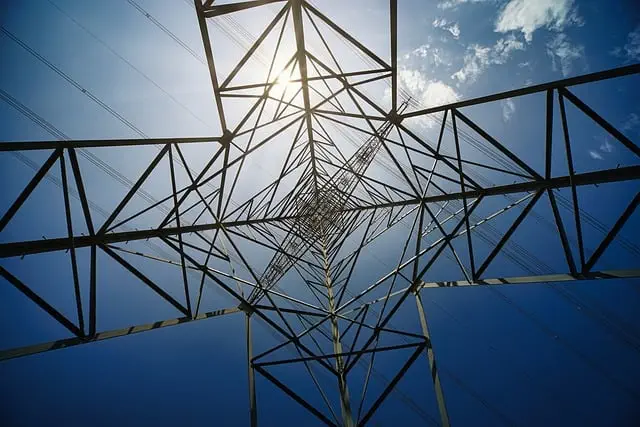Kratom, a tropical tree native to Southeast Asia, has gained popularity as a natural analgesic due to its mitragynine and 7-hydroxymitragynine alkaloids. Its effects include pain relief, mood enhancement, stimulation, and anxiolysis. The US Army has shown interest in kratom for muscle soreness and fatigue reduction among soldiers, but its legal status varies globally. Athletes often use kratom as a natural alternative to over-the-counter pain relievers. The Army conducts rigorous testing for kratom usage due to its dual therapeutic and recreational nature, with positive test results leading to disciplinary action. This policy balances personal wellness and maintaining a disciplined environment.
“Discover an effective natural remedy for muscle soreness relief with kratom—a herb gaining traction in fitness and military circles. This article explores the science behind kratom’s pain-relieving properties, backed by personal testimonies of its success. We delve into how the military, particularly service members, are turning to kratom as a potential alternative treatment, raising important questions about testing and regulations. Find out if the army tests for kratom and navigate this growing trend with evidence in mind.”
- What is Kratom and How Does it Affect the Body?
- Exploring Kratom's Role in Relieving Muscle Soreness: Science and Personal Testimonies
- The Army and Kratom: Testing, Regulations, and Considerations for Service Members
What is Kratom and How Does it Affect the Body?

Kratom, scientifically known as Mitragyna speciosa, is a tropical tree native to Southeast Asia. Its leaves contain powerful compounds called alkaloids, with mitragynine and 7-hydroxymitragynine being the most notable. When consumed, these alkaloids interact with opioid receptors in the brain and body, leading to various effects, including pain relief and mood enhancement. This natural analgesic has gained popularity for its potential to alleviate muscle soreness and other types of chronic pain.
The impact of kratom on the body is multifaceted. It can act as a mild stimulant, increasing energy and focus, while also producing sedative and anxiolytic effects. The pain-relieving properties are attributed to its ability to block certain neurotransmitters and modulate pain signal transmission. Interestingly, the US Army has recognized the potential benefits of kratom for muscle soreness relief and fatigue reduction among soldiers, leading to discussions about its military applications. However, it’s important to note that kratom’s legal status varies globally, and understanding local regulations is crucial before considering its use for any purpose, especially in high-risk environments like the military.
Exploring Kratom's Role in Relieving Muscle Soreness: Science and Personal Testimonies

Kratom, a natural herb with a growing popularity in alternative medicine, has been studied for its potential benefits in relieving muscle soreness. While some users swear by its effectiveness, exploring the science behind kratom’s role in this context is essential. Research suggests that kratom’s active compounds interact with opioid receptors in the body, potentially blocking pain signals and reducing inflammation, which could contribute to muscle recovery.
Personal testimonies further highlight its use as a natural remedy for post-workout soreness and athletic injuries. Many athletes claim that kratom helps them manage discomfort without relying heavily on over-the-counter pain relievers. Interestingly, even the U.S. Army has shown interest in kratom as a potential alternative therapy, reflecting its potential significance in managing muscle soreness among active duty personnel. However, further scientific studies are needed to fully comprehend its mechanisms and establish definitive guidelines, especially considering that does the army test for kratom remains a relevant concern for those exploring this natural remedy.
The Army and Kratom: Testing, Regulations, and Considerations for Service Members

The U.S. Army, recognizing the potential benefits and risks of various substances, including kratom, has implemented rigorous testing protocols. These tests are part of a broader effort to ensure the well-being and safety of its service members. The military’s strict regulations regarding kratom usage stem from its status as a controlled substance with both therapeutic and recreational uses. Service members are subject to regular drug screenings, particularly when deployed or participating in high-risk operations, which include testing for kratom.
Does the army test for kratom? Absolutely. Positive test results can lead to disciplinary action, including administrative penalties or even legal consequences. Service members should be aware of the potential risks and understand that using kratom, especially in undisclosed forms or concentrations, could impact their military career. The Army’s approach emphasizes a balance between personal well-being and maintaining a disciplined and safe environment for all personnel.
Kratom has emerged as a natural alternative for managing muscle soreness, backed by both scientific research and personal accounts. However, its widespread use raises important questions, particularly within military contexts. The U.S. Army’s testing and regulations regarding kratom usage are crucial to ensure the safety of service members. As awareness grows about kratom’s potential benefits, further exploration is needed to balance its therapeutic uses with any risks, especially in high-performance environments like the military, where rigorous physical demands are common. Understanding the science behind kratom’s effects on muscle soreness can help shed light on its appropriate application and usage limits.






